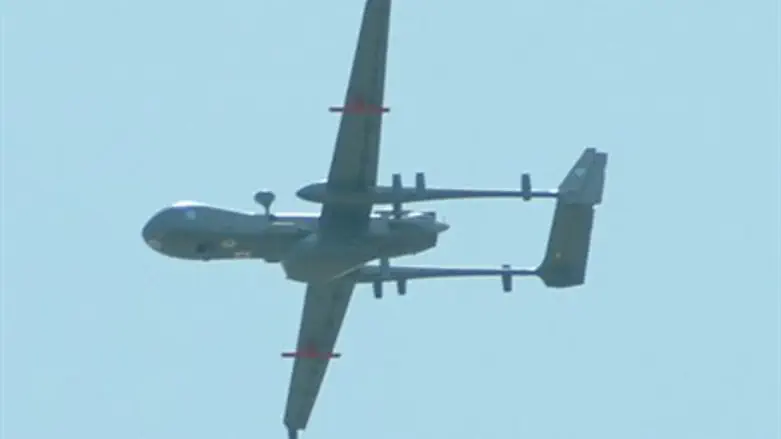
India has accelerated plans to buy drones from Israel that can be armed, defense sources told Reuters on Monday, allowing the military to carry out strikes overseas with less risk to personnel.
The news comes weeks after India’s long-time rival Pakistan first reported using a home-made drone in combat when it attacked militants on its soil, raising the prospect of a new front in the nuclear-armed neighbors' longstanding standoff over Kashmir.
The plan to acquire Israeli Herons was first conceived three years ago, but in January the military wrote to the Israeli government asking for speedy delivery, the sources quoted by Reuters said, as Pakistan and China develop their own drone warfare capabilities.
India recently quietly purchased ten armed Heron TP drones from Israel in a $400 million deal, it was reported earlier this month by the Economic Times.
The drones will be operated by the Indian Air Force and are due to join its ranks within a year.
India has already deployed Israeli unmanned aerial vehicles (UAVs) along the rugged mountains of Kashmir for surveillance, as well as on the disputed border with China where the two armies have faced off against each other, according to Reuters.
An Indian air force official with knowledge of the matter told the news agency on Monday that he expected the agreement for the purchase of the Heron drones to be inked soon.
The Indian Defense Ministry declined to comment.
In 2013, India bought 15 unmanned Harpy UAVs from Israel, in a deal worth just under $2 million.
In 2009, India bought the Phalcon tactical and surveillance system from Israel, as part of a $1.1 billion deal signed between India, Russia and Israel in January 2004. Israel's military industry firm also announced plans at the time to establish five factories in India for the production of artillery shells.
India has also been boosting its defense capabilities against border countries. In 2013, New Delhi announced a successful missile test of the Agni-V missile, which could reach both Pakistan and China.
Gurmeet Kanwal, a former head of the government-funded Center for Land Warfare Studies in New Delhi, told Reuters the armed Herons due to enter Indian service by late 2016 will give the air force deep-strike capability.
A source quoted by the news agency said a delegation from state-owned Israel Aerospace Industries (IAI) has been holding talks with the Indian defense ministry to determine the possibility of local manufacture of the Heron TP as part of the "Make-in-India" program.
Israel does not confirm or deny using or producing armed drones. IAI declined comment on the proposed sale of the Herons, as did Israel's Defense Ministry, which oversees such arms exports.